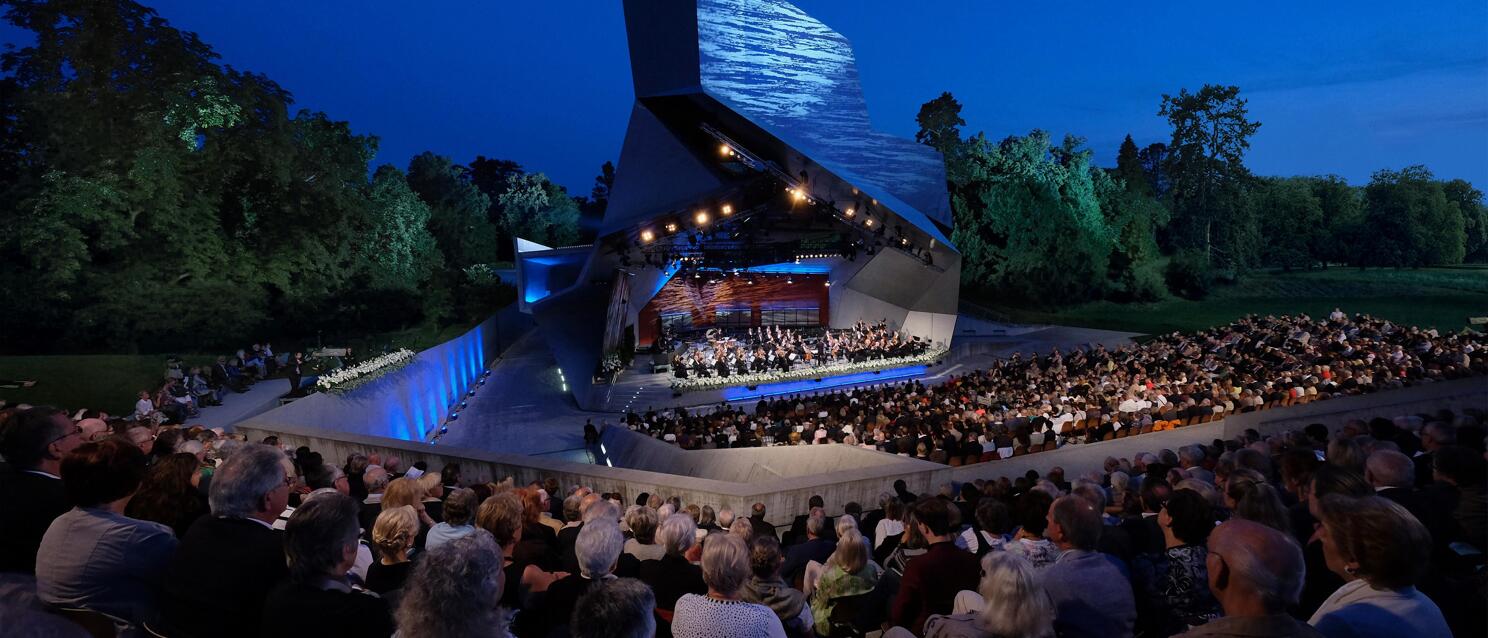The Most Beautiful Festivals in Austria

Austrian cultural enjoyment as a way of life
In Austria, the spark of enthusiasm for music ignites quickly. Visitors here delight in the variety and lightness, experiencing them as a distinct way of life. Magical venues provide unique backdrops for captivating musical experiences at festivals and events.
Art and culture in Austria are renowned for their highest artistic standards, yet performances are always infused with a sense of ease. Festivals and events play a crucial role in this, offering a diverse range of styles—whether classical or modern—and reflecting the creative spirit of their locations. It's no surprise that festivals and performances here become the stage for those who prefer collecting beats and live moments over souvenirs when gig-tripping. The blend of powerful music, creative interpretation and stunning backdrops is deeply moving – and leaves you with a near-euphoric feeling.
Guests relish the vibrancy of both bygone eras and contemporary times, whether at the Grafenegg Festival, the world-famous Salzburg Festival, or the Saalfelden Jazz Festival. In every moment of enjoyment, Austria’s creative flair and love for music are palpable. Placing great importance on the world of music and engaging in discussions about performances together—this defines the unique way of life for those who cherish art and culture. Let yourself be inspired and carried away by this emotion, and experience the joy of Austrian culture!
Opera in spectacular settings
The Queen of Festivals. Who doesn't know the world-famous Salzburg Festival? The staging of "Jedermann" draws visitors from all over the globe to the city of Mozart every year. But it's not just classical music enthusiasts who are treated to a feast: the program spans everything from premieres of contemporary works and new music to avant-garde experiments. It's no wonder that every summer, the crème de la crème of the art world gathers in Austria. From St. Margareten to Salzburg and Bregenz—music with the wow factor!
Is it the spectacular natural backdrops, the magnificent productions of world-famous operas, or the surprising and elaborate stage designs that captivate anew each year? Whatever it may be, it is definitely a complete experience that will stay with you for a long time.
Raising the curtain on magnificent backdrops
Jazz, pop, folk, or world music combined with natural beauty come together splendidly at an increasing number of festivals in Austria. What could be better than experiencing a festival in the open air, surrounded by nature and set in an impressive location? Austria offers a range of options: whether it's a historic moat, a baroque park, a serene forest lake, or a disused quarry, each setting has its own unique charm.
Currently trending are events held in select, sometimes remote locations. The natural surroundings become a stage that enhances the music's impact while providing visitors with not only cultural enjoyment but also valuable relaxation and culinary delights.
Music, art and tradition amidst snow-covered landscapes
In Austria, numerous festivals and festivals are transformed into magical experiences in winter. In the midst of snow-covered landscapes, they combine music, art and tradition. From classical concerts to modern performances, they offer a diverse program that perfectly complements the winter atmosphere. The unique backdrop of the Alps and picturesque towns make these events unforgettable highlights that transport visitors to a magical winter wonderland.
Green Festivals
An increasing number of people are recognising the importance of a healthy, sustainable lifestyle. With climate change now a major topic of discussion, more and more festival organisers are adopting sustainable practices: "Green Festivals," for instance, avoid single-use plastics and offer a greater selection of organic cuisine with regional dishes and beverages.
It’s also crucial for festival-goers to adhere to guidelines and treat their surroundings with care. This way, enriching musical experiences in pristine natural settings can continue to be enjoyed in the future.
Great bands from Austria
Austria's music scene is diverse and creative, with numerous talented bands and solo musicians making their mark on international stages. Whether it's traditional tunes, modern pop melodies, or experimental sounds, Austrian bands captivate audiences with their uniqueness and passion. Each ensemble brings its own flair to the music world, adding a distinctive Austrian charm. From intimate clubs to large festivals, Austria's music scene is an experience you shouldn't miss!